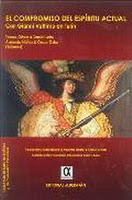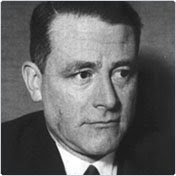Santiago
Zabala
Theaetetus Protagoras insisted that one
should not persuade the other of what is true in relation to what is false
because no one has ever succeeded in doing so and most of all because truth in
itself is not the issue in political discussions, debates, and deliberations.
But there is one thing that Protagoras wanted to persuade people about, namely
improvement. From the point of view of ancient Greek politics, this is all that
can be done: We can strive to achieve a better situation, which inevitably will
require further improvement. But if nothing but improvements can be hoped for,
then “truth” or the “good” have no place in this progress because they
presuppose final achievements, accomplishments, and results.
The point of
Protagoras is that one should never persuade people of what is good—only of the
need for improvement.
 According to the late American philosopher Richard Rorty, while philosophy has anything to do with truth, it has nothing to do with politics motivated solely by search for improvements, as Protagoras explained. The metaphysical or Platonic image of philosophy as a reflection of eternal problems that continuously assail the human mind is not adequate anymore because there are no fundamental philosophical essences left after the deconstruction of metaphysics. If culture is subject to continuous social changes, philosophy can solve those particular problems by interpreting and suggesting further developments and applications.
This is why, as Rorty recalls, a philosopher like John Dewey had “abandoned the
idea that one can say how things really are, as opposed to how they might best
be described in order to meet some particular human need.”
According to the late American philosopher Richard Rorty, while philosophy has anything to do with truth, it has nothing to do with politics motivated solely by search for improvements, as Protagoras explained. The metaphysical or Platonic image of philosophy as a reflection of eternal problems that continuously assail the human mind is not adequate anymore because there are no fundamental philosophical essences left after the deconstruction of metaphysics. If culture is subject to continuous social changes, philosophy can solve those particular problems by interpreting and suggesting further developments and applications.
This is why, as Rorty recalls, a philosopher like John Dewey had “abandoned the
idea that one can say how things really are, as opposed to how they might best
be described in order to meet some particular human need.”
Rorty, just as Dewey, was in agreement with the deconstructors of “metaphysics of presence” that included Nietzsche, Freud, and Heidegger, because they showed how
objectivity is more a matter of intersubjective consensus among human beings
than an accurate representation of something nonhuman. These deconstructors of
metaphysics freed human beings from disagreement since they showed that the
resolution of disagreement cannot appeal to the way the world really is since
there is no single reality but a multiplicity of realities that depend on
different needs. The resolution, explains Rorty, can only be “political: one
must use democratic institutions and procedures to conciliate these various
needs, and thereby widen the range of consensus about how things are.”
It is in Rorty’s neopragmatic thought that we will find the meaning of philosophy for politics after the deconstruction of metaphysics because his analyses are not a part of but,rather, the outcome of this deconstruction. If the last great deconstructor of
metaphysics, Derrida, showed us how conceptual distinctions such as
objective-subjective, true-false, man-woman, faith-knowledge, are only the
beginnings and the end points of a ladder we must throw away, Rorty indicated
what to do with such ladder.
Questioning whether the justifications these deconstructors use to confirm their thesis are metaphysical is, on the other hand, a way of falling back into metaphysics because there is no natural order capable of justifying their beliefs, nor is there any meta-way beyond argumentation that may justify justifications. Searching for these criteria is not very useful for justification in itself because philosophy has always been characterized by the compromises on concrete and particular issues, from which it is impossible to deduct a general verification-rule. After the
deconstruction of metaphysics we may stop asking what is real and what is not
since “only if we drop the whole idea of ‘correspondence with reality’ can we
avoid pseudo-problems.” If reality does not present itself, but it is us that
linguistically give meaning to the world, the justification of knowledge will
not depend on the permanent conditions of knowledge since justification is a
social phenomenon, rather than a relation between knowledge and reality.
Knowledge, after deconstruction, is not the possession of an essence, but a
right—the right between arguments upon which it is relatively easy to obtain a
non-enforced agreement, in other words, “the ability to get agreement by using
persuasion rather than force.”
Having said this, it is clear that the so-called “free Socratic exchange of public opinions” does not rely on the Platonic idea of a universal possible agreement since truth, understood as a previous order, is irrelevant for the correct functioning of democracies.
While intellectuals, regardless of their ideological position, believe that political actions demand nonpolitical (that is, philosophical) foundations, they will continue to express a desire for the philosophical authorities these principles
depend upon. But requiring a philosophical or religious prologue to politics
means that “Philosophy” is in itself the search for such an authority, a
research where “reason” has the same function that God once had, when
“philosophy is [really] an attempt to see how ‘things, in the largest sense of
the term, hang together.” Also, what justifies a conception of justice is not
its adequacy to a philosophical or religious order that is given, but rather
its congruency with that understanding of our traditions which is rooted in the
private and public life we are all immersed in. As Hans-Georg Gadamer once said
“the difficulty lies not in our not knowing the truth, or the politician not
knowing the truth, or his not needing to know the truth. Here Rorty is correct
– anyone who engages in politics can’t simply desire the true or the good
exactly – it’s undoubtedly correct to say that he orients his own action and
conduct with a view to the pragmatic. One can’t simply dispense with what the
good politician would have or should have been able to understand, or what he
has personally been able to observe in the practical situation. On the
contrary, we see that this farsighted discernment of the politician is very
often what is decisive in life praxis – much like it is with the businessman”.
jueves, 29 de noviembre de 2012
What is the Meaning of Philosophy for Politics?
Publicado por Víctor Samuel Rivera en 21:11
Etiquetas: Santiago Zabala
Suscribirse a:
Enviar comentarios (Atom)
Coalición Global
Visitantes
Colaboradores de La Coalición. Con diversidad de enfoques y posiciones
- Carlos Pairetti - Universidad del Rosario
- Daniel Mariano Leiro - Universidad de Buenos Aires
- David Villena - UNMSM
- Davide de Palma - Università di Bari
- Dick Tonsmann - FTPCL y UNMSM
- Eduardo Hernando Nieto - Pontificia Universidad Católica del Perú
- Enmanuel Taub - Conicet/Argentina
- Gianni Vattimo - Universidad de Turín
- Gilles Guigues - Université de Provence
- Hernán Borisonik - Sao Paulo
- Ildefonso Murillo - Universidad Pontificia de Salamanca
- Jack Watkins - University of Notre Dame
- Jimmy Hernandez Marcelo - Facultad de Teologia Pontificia y Civil de Lima
- Juan Villamón Pro - Universidad Ricardo Palma
- Lucia Pinto - Universidad de Buenos Aires
- Luis Fernando Fernández - Universidad Pontificia Bolivariana de Medellín
- Martín Santiváñez - Universidad de Navarra
- Piero Venturelli - Bolonia
- Raffaela Giovagnoli - Università di Roma Tor Vergata
- Ramiro Pablo Álvarez - Córdoba, Argentina
- Raúl Haro - Universidad de Lima
- Santiago Zabala - Universidad de Columbia
- Víctor Samuel Rivera - Universidad Nacional Federico Villareal




































0 comentarios:
Publicar un comentario